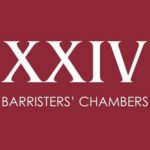Timothy Sherwin examines the importance of s53 of the Trust (Guernsey) Law and the rule in Saunders v Vautier Discretionary beneficiaries cannot be said to have an immediate, vested and indefeasible interest in the trust property. This article considers the decisions at first instance and on appeal, in Rusnano Capital AG (in liquidation) v Moland …
Continue reading "Trusts: When is a beneficiary not a beneficiary?"
This post is only available to members.
Wills & Trusts Law Reports | Winter 2019 #177The claimants were the trustees of a number of trusts relating to an English estate, including a fund created by an appointment in 1978 (the T fund). The claim was for rectification or alternatively rescission of a deed of appointment made in 2010 relating to a sub-fund of the T fund. The defendant was the beneficiary of the relevant sub-fund. He did not oppose the claim. HMRC were aware of the proceedings but chose not to take part other than to request that certain authorities be considered by the court.
In 1930, the settlor had settled property on a strict settlement which incl...
Sean Hilton highlights the importance of identifying trust issues at the outset of a case and ascertaining the willingness of trustees to make distributions from such assets ‘Had the court in Wodehouse been fully appraised of the nature of the trusts, and had the trustees been properly questioned, the judge may have reached a different …
Continue reading "Trusts: The complete picture"
This post is only available to members.
Timothy Sherwin explores the unanimity principle, and the position of trustees managing art and cultural property ‘Strangers need only examine the trust instrument and satisfy themselves that the relevant power can be validly exercised by only some of the trustees, and they can then assume that the actual exercise by some of the trustees is …
Continue reading "Trusts: Striking an artful balance"
This post is only available to members.
Sukhninder Panesar looks at recent case law on liability for knowing assistance ‘In order for a stranger to be held liable for assisting in a breach of trust, a number of requirements must be met.’ What constitutes dishonesty in the English legal system has continued to challenge both civil and criminal courts. Over the last …
Continue reading "Trusts: Test of dishonesty revisited"
This post is only available to members.
Mark Pawlowski examines recent case law on resulting trusts, the presumption of advancement and joint borrowing under a mortgage ‘The court reiterated the view, expressed in Gorman, that prima facie, if the purchase is financed in whole or in part on mortgage, the person who undertook liability for the mortgage repayments, as between joint owners, …
Continue reading "Trusts: Who owns what?"
This post is only available to members.
Wills & Trusts Law Reports | Summer 2019 #175Introduction
W, who died some years ago, established several settlements (referred to generally as ‘the General Family Trusts’), either directly or by trustees to whom he had provided funds. The value of the General Family Trusts was very substantial indeed. W had been married several times and had a large family. A representation was issued in respect of two of the General Family Trusts: the Y Trust and the Z Trust. The trustee companies of both of the trusts were amongst the respondents.
It had been W’s wish that after his death, in the administration of ...
Sean Hilton highlights the importance of identifying trust issues at the outset of a case and ascertaining the willingness of trustees to make distributions from such assets ‘If the court is to find that assets not held in the name of an individual are nonetheless a resource available to them, it must first hear evidence …
Continue reading "Trusts: The complete picture"
This post is only available to members.
Richard Dew and James Egan give an analysis of the current status of the doctrine of illegality and trusts ‘There are two categories of conduct that count for the purposes of the doctrine of illegality: first, criminal acts; and second, quasi-criminal acts which engage the public interest in some way (such as cases involving dishonesty …
Continue reading "Trusts: It will be alright on the Knight"
This post is only available to members.
Mark Pawlowski and James Brown examine the possibility of using the mechanism of a residuary legatee in order to enforce a trust for non-charitable purposes ‘If there are no beneficiaries with equitable interests in the trust assets, there is technically no one “in whose favour the court can decree specific performance”.’ As trust lawyers will …
Continue reading "Trusts: Enforcing private purpose trusts"
This post is only available to members.








